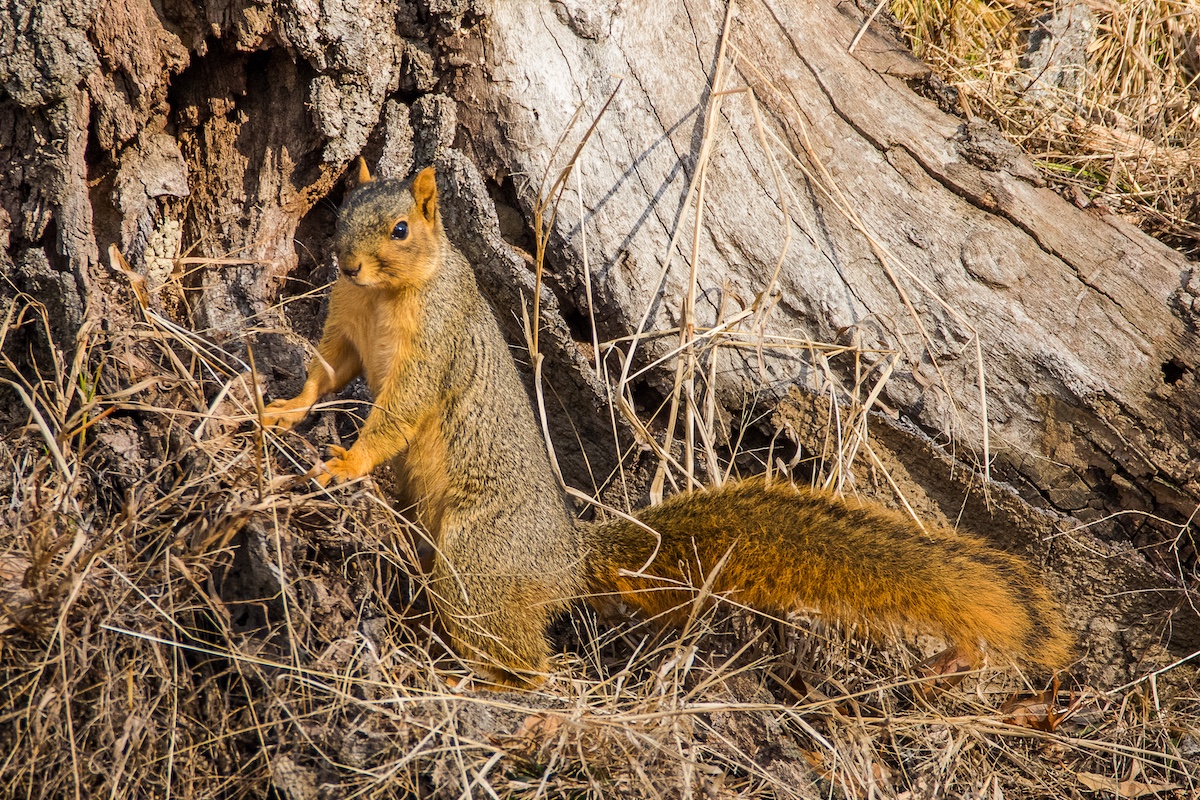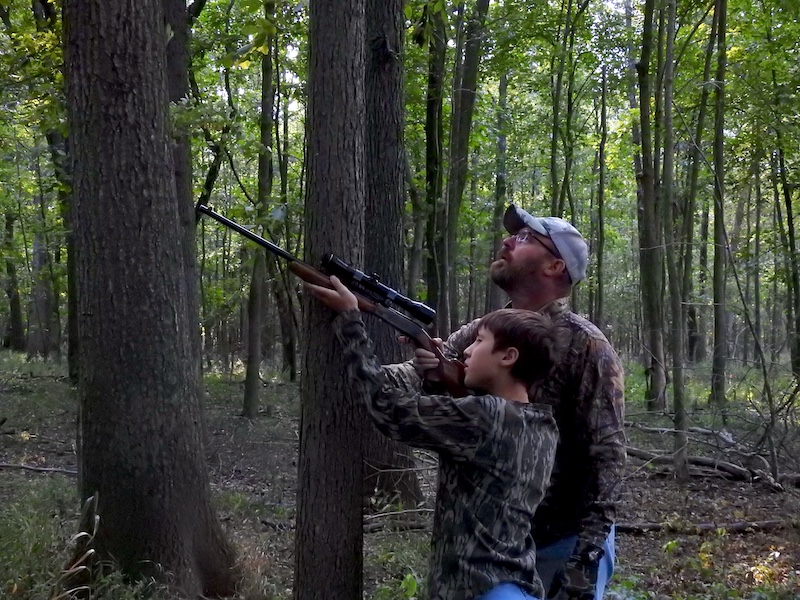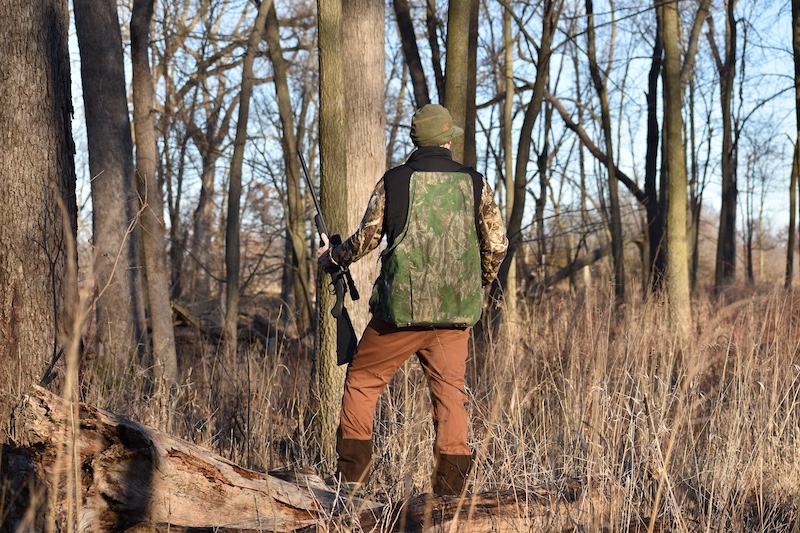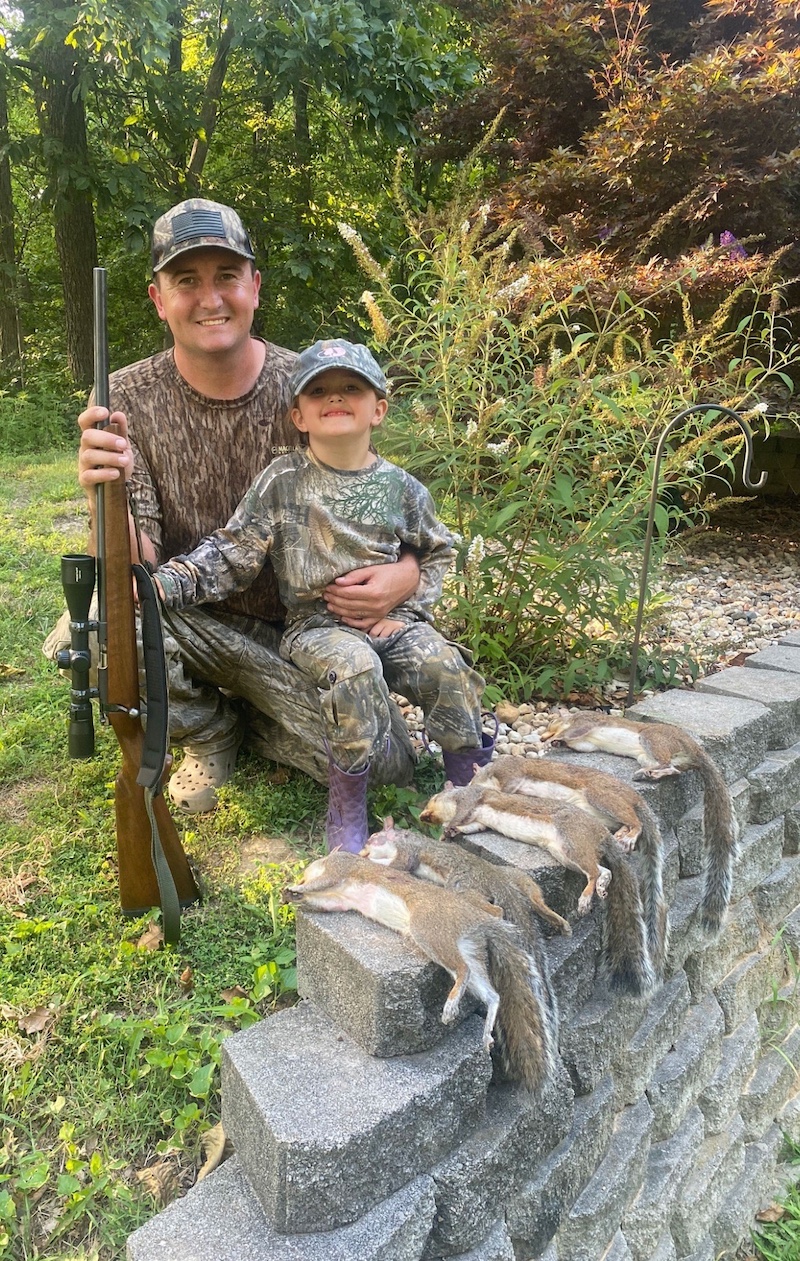
Fox squirrel. Photo by Gretchen Steele.


Fox squirrel. Photo by Gretchen Steele.
In recent decades, squirrel hunting—a once-essential tradition for developing hunters and woodsmen—has experienced a notable decline in popularity. This decline, however, does not diminish the rich heritage and tradition that squirrel hunting carries. Recruitment, Retention, and Reactivation (R3) programs, along with broader hunter recruitment initiatives, have largely bypassed this humble game species in favor of promoting large game, turkey and waterfowl hunting. In doing so, they inadvertently neglect the critical foundational skills that squirrel hunting instills not only in youth but in all novice hunters.
Unlike more glamorous game, squirrels lack organized conservation groups, professional sponsorships or widespread acclaim. There is no equivalent to “Squirrels Unlimited” or “Squirrel Pro Staff” teams. The once-respected act of carrying a few squirrels in a vest is no longer viewed as an admirable accomplishment when compared to the pursuit of trophy bucks, strutting gobblers or a strap full of waterfowl. Consequently, squirrels have been relegated to the derogatory status of “tree rats,” a development that is both unfortunate and short-sighted.
For generations, many lifelong hunters began their outdoor experiences by pursuing squirrels alongside older family members or neighborhood peers. These excursions offered invaluable lessons in forest ecology, animal behavior, marksmanship, gun safety and self-reliance. The simple yet profound act of providing a meal—squirrel with biscuits, gravy and fresh tomatoes—offered a tangible sense of success and self-worth. The pride and satisfaction that come from a successful squirrel hunt are unparalleled, fostering a sense of accomplishment and motivation to continue the pursuit.
Squirrel hunting lays the critical foundations for patience, persistence, self-discipline, camouflage and stealth. Regardless of whether the quarry is a 200-inch buck or a two-pound fox squirrel, the fundamental skills required are the same: understanding terrain, reading animal signs, adapting to weather conditions and moving quietly through the woods. In my experience, the most adept hunters and woodsmen often trace their origins back to summer mornings and evenings spent pursuing the elusive bushy-tailed creature through hot, buggy forests.
Thus, there is a pressing need to revive squirrel hunting as a practical and accessible entry point for new hunters. A concerted effort to reintroduce children and novice hunters to squirrel hunting can reinvigorate a crucial tradition while ensuring the survival of essential outdoor skills. Below are six key reasons why squirrel hunting remains the ideal gateway to a lifelong passion for the outdoors:

One of the primary deterrents for young and new hunters is the absence of early success. Without seeing, interacting with or harvesting game, novices often rapidly lose interest. Squirrels, however, are abundant in most habitats, and the opportunities for successful encounters are numerous. While developing proficiency in shot placement requires practice, the frequent availability of shots fosters confidence and provides the immediate gratification necessary to sustain interest. Bringing home game for a family meal builds both pride and motivation.
Unlike deer or turkey hunting, squirrel hunting is mainly free of bureaucratic barriers such as specialized permits, tags or lotteries. Public lands and even small woodlots often harbor healthy squirrel populations, and private landowners who might hesitate to grant deer or waterfowl hunting permission are more amenable to allowing squirrel hunting, particularly when squirrels are viewed as nuisances in gardens or orchards, access may be readily granted. Furthermore, there rarely is the competition seen at public hunting areas during peak big game seasons.
Although early squirrel seasons can be hot, humid and plagued by insects, these conditions are generally more tolerable than the freezing temperatures associated with later hunting seasons. Early morning or evening hunts minimize discomfort, and if hunting concludes early, young hunters can wade in creeks or explore the woods further, thereby enhancing their overall outdoor experience. It is challenging to foster enthusiasm for hunting if beginners are cold, miserable, and weighed down by heavy clothing.

Squirrel hunting does not require significant financial outlays. Basic outdoor clothing—sturdy shoes, lightweight pants and shirts (often secondhand camo works best) a hat, and insect repellent—constitutes adequate attire. Firearms suitable for squirrel hunting, such as a .22 rifle or a youth model shotgun, are considerably less expensive than those needed for larger game. Consequently, families can outfit young hunters without straining their finances, making participation more inclusive.
Squirrel season coincides with a period of great ecological activity. The woods teem with life—snakes, spiders, birds, amphibians and a variety of small mammals—all providing abundant opportunities for incidental learning. Interest can be maintained not only through hunting but also through exploration and observation of the natural world. Identifying trees, mushrooms and animal tracks becomes a natural extension of the hunt. Compared to the often barren and somber winter woods, the vibrant environment of early squirrel season is far more engaging for young minds.

Squirrel hunting provides an ideal environment for beginners, as it is forgiving of mistakes. Missing a shot or momentarily losing focus does not result in catastrophic consequences; squirrels are abundant and quick to return. Young hunters can afford to be exuberant, ask questions, and even become distracted by a spider spinning a web or a bird feeding its young. Unlike big game hunting, where every mistake can result in the loss of a rare opportunity, squirrel hunting provides continuous chances for success, reducing pressure and enhancing enjoyment. Moreover, this setting teaches that hunting is not solely about harvesting animals but about appreciating the total outdoor experience and building memories with family and friends.
It is incumbent upon the hunting community to revive the stature of squirrel hunting and reestablish it as a primary method of introducing new hunters to the outdoors. By committing to take at least one new hunter afield this squirrel season, we can ensure that the next generation develops the skills, values and love for nature that have sustained hunting traditions for centuries.
Let us work together to “Make Squirrel Hunting Great Again.” Perhaps, in future seasons, we will see outdoor publications filled with joyful photographs of young hunters proudly holding their harvest of squirrels—symbols of both their success and the enduring legacy of hunting.
Gretchen Steele hails from Coulterville. Steele is a freelance outdoor communicator. Her award-winning work appears as a regular columnist and contributing feature writer for Illinois Outdoor News and several Illinois newspapers. She enjoys spending her time afield as a volunteer for the Illinois Department of Natural Resources, Delta Waterfowl Foundation, Retrievers Unlimited, and various other conservation organizations. Steele is a member of the Illinois Conservation Federation Outdoor Hall of Fame. She is the Past President of Missouri Outdoor Communicators and remains an active member. Steele is a current and active member and formerly served on the Board of Directors with Association of Great Lakes Outdoor Writers.
Submit a question for the author